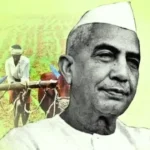Morarji Desai: A Revolutionary Leader and Visionary for India’s Future
Morarji Desai, an Indian independence movement veteran and the 4th Prime Minister of India, stands as one of the most unique and distinguished leaders in India’s post-independence history. His remarkable journey from a freedom fighter to the highest office of the land left a lasting impact on India’s political and social landscape. His life story is marked by resilience, commitment to ideals, and a unique approach to governance that shaped his legacy.
Early Life and Education
Morarji Ranchhodji Desai was born on February 29, 1896, in Bhadeli, a small village in the Gujarat region of India. Raised in a religious and disciplined family, Desai’s upbringing had a profound influence on his future decisions. His early education was in local schools, and he later attended the Government High School in Bharuch. Desai was deeply influenced by his teachers and the social environment around him, which sparked his interest in politics and social service.
Desai pursued his education at the Wilson College in Mumbai. During his youth, he developed a keen interest in public affairs and was soon involved in social and political activism. Inspired by Mahatma Gandhi’s vision for an independent India, he joined the freedom struggle in the early 1920s, contributing to India’s march towards freedom.
Entry into Politics
Morarji Desai’s political journey began with his active participation in the Indian independence movement. He was initially drawn to the cause due to his strong nationalist sentiments, and he became a prominent member of the Indian National Congress (INC). Desai’s early political career was centered around advocating for political reforms, independence, and social justice.
He played a crucial role during the Quit India Movement of 1942, where he was arrested and jailed for his involvement in protests against British colonial rule. After India’s independence in 1947, he continued to be active in the political scene, becoming the Chief Minister of Bombay (now Mumbai) from 1952 to 1956.
As Prime Minister of India
Morarji Desai’s most significant political role came in 1977 when he became the 4th Prime Minister of India. His ascent to the highest office was unusual, as he was chosen by the Janata Party, a coalition formed after the emergency period of 1975-77. Desai’s government was marked by a commitment to uphold democratic values, transparency, and governance reforms.
- Economic Reforms: Desai’s tenure as Prime Minister was focused on improving India’s economy. He was instrumental in adopting policies that sought to reduce the country’s reliance on foreign aid and encourage self-sufficiency. Under his leadership, the Indian government pursued economic measures aimed at reducing inflation and promoting industrial growth.
- Foreign Policy: Morarji Desai also focused on strengthening India’s foreign relations. He played a pivotal role in ensuring India’s place in the global arena, building relationships with neighboring countries, and pursuing non-alignment during the Cold War. His government maintained a peaceful stance and worked towards improving relations with both the Western and Eastern blocs.
- Social Policies and Governance: As Prime Minister, Desai was known for his efforts to implement social welfare policies. His focus was on rural development, education, and improving the lives of the marginalized sections of society. His government’s efforts were aimed at alleviating poverty, improving public health, and promoting education in rural areas.
Daily Life and Personal Philosophy
Morarji Desai’s daily life reflected his commitment to personal discipline, spirituality, and simplicity. Known for his frugality and commitment to a healthy lifestyle, Desai adhered to a routine that involved early morning prayers, simple meals, and regular physical activity.
- Dietary Practices and Health: One of the most fascinating aspects of Desai’s personal life was his unique dietary habit. He was a strict follower of a vegetarian diet and practiced fasting regularly. Desai was also famous for his claim to have lived healthily by drinking his own urine, a practice he believed had medical benefits. While controversial, it became one of his defining quirks that attracted public attention.
- Spirituality and Values: Morarji Desai was deeply spiritual and followed the teachings of Hinduism. His belief in simplicity, non-violence, and self-discipline permeated both his personal and political life. Despite his political success, he led a humble and austere lifestyle, which was admired by many. Desai’s personal principles of honesty and transparency were reflected in his public service.
- Influence of Gandhi’s Teachings: Desai was heavily influenced by Mahatma Gandhi’s principles of truth and non-violence. His political journey was rooted in these values, and he remained a staunch advocate for Gandhian ideals throughout his life.
Legacy and Significance
Morarji Desai’s legacy lies in his unwavering commitment to democratic ideals and social justice. Though his tenure as Prime Minister was brief (1977-1979), his contributions to India’s development were significant. Here are some of the key aspects of his lasting impact:
- Champion of Democracy: Desai’s leadership during the Emergency (imposed by Indira Gandhi) was notable for his firm stance in favor of democracy. His government came to power in the aftermath of the emergency and focused on restoring democratic norms, reducing censorship, and releasing political prisoners.
- Promoting Good Governance: Desai’s government was marked by an attempt to eliminate corruption and promote transparent governance. He worked towards reducing government interference in people’s lives and promoted a free press. His government also introduced certain key reforms aimed at improving the efficiency of the bureaucracy.
- Moral and Political Integrity: Desai’s personal integrity and moral values were central to his political career. Even after his resignation as Prime Minister, he continued to influence the political discourse in India, advocating for political reforms and the upholding of democratic principles.
FAQs About Morarji Desai
Q1: What was Morarji Desai’s most significant contribution to India?
Morarji Desai’s most significant contribution was his leadership during the emergency period, his efforts to restore democracy, and his focus on economic self-sufficiency and social reforms.
Q2: Was Morarji Desai associated with the Congress Party?
Yes, Morarji Desai was initially associated with the Indian National Congress. However, he later became a prominent leader of the Janata Party after his resignation from Congress.
Q3: What were Morarji Desai’s views on health and diet?
Desai was known for his unique health regimen, which included regular fasting and his controversial practice of drinking his own urine, which he believed had medicinal properties.
Morarji Desai was a man who lived by his convictions, driven by a vision for a better, self-reliant India. His unique leadership style and moral fortitude continue to serve as an inspiration for politicians and citizens alike, making him a pivotal figure in the story of India’s journey to democracy and development.










